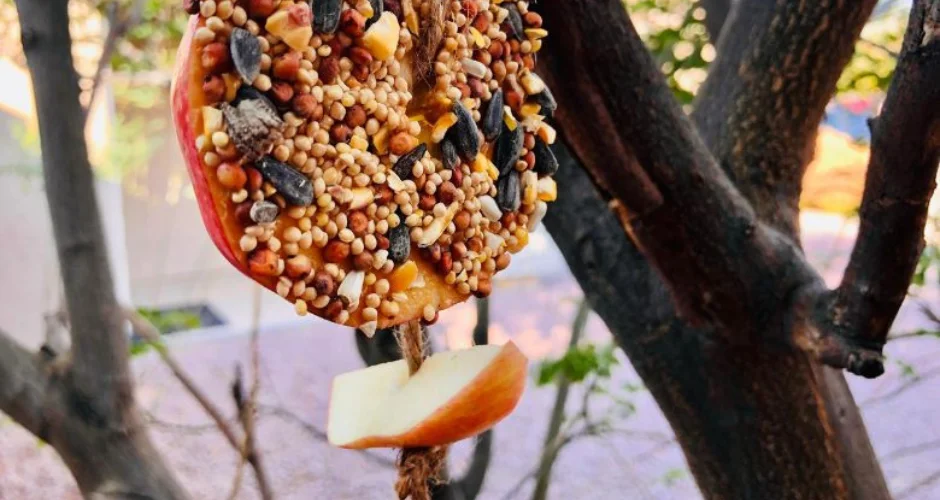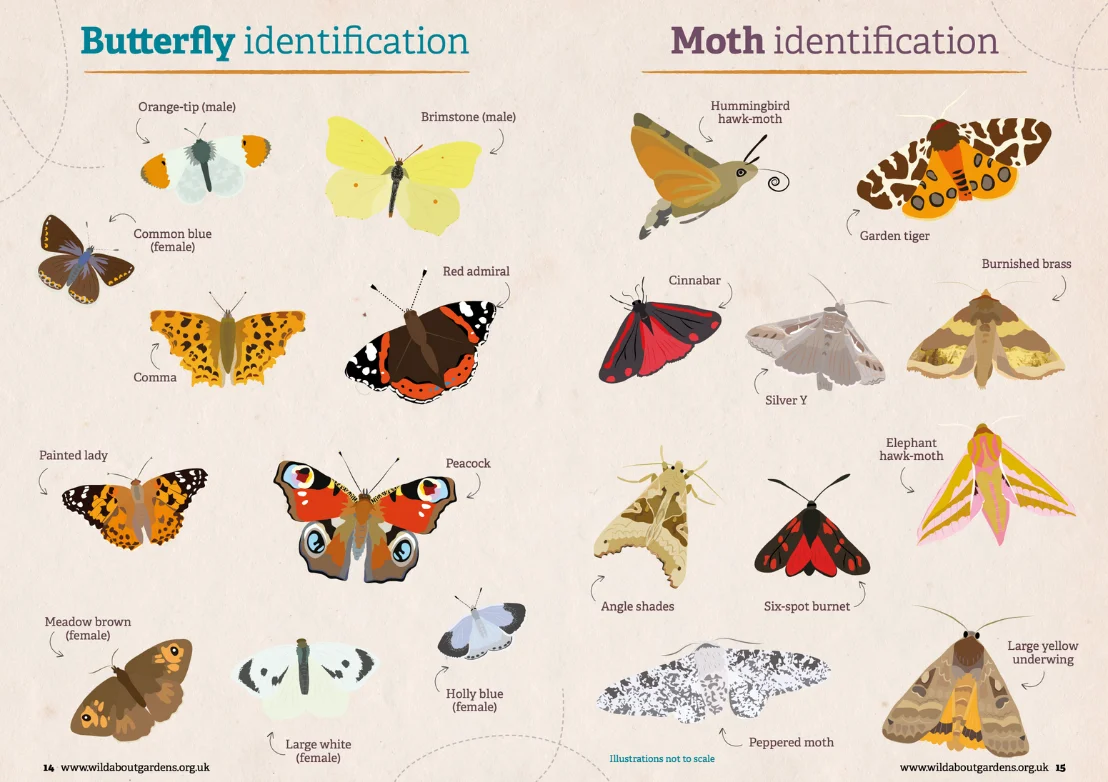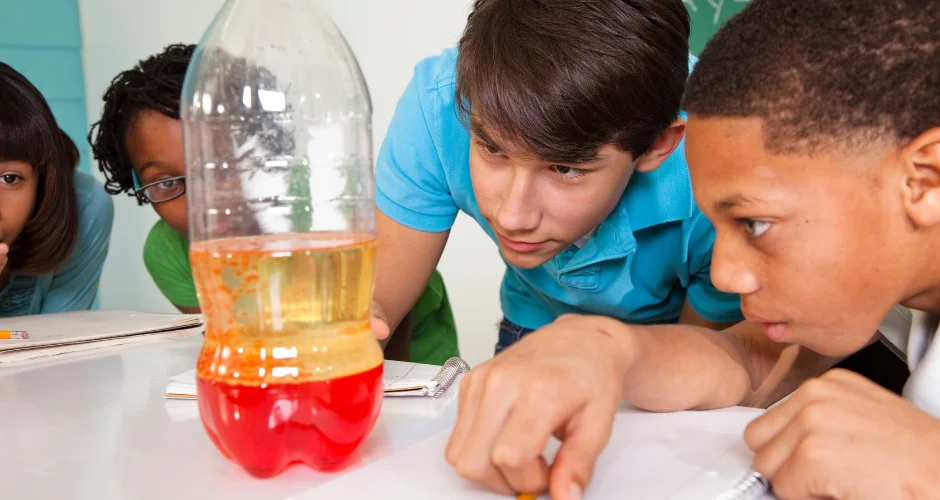GUEST POST
10 STEM Inspired Activities for Children

Celebrate the holidays with your kids with these hands-on activities! Come rain or shine, these fun ideas will ignite the passion for Science in pre-school to 13-year-olds.
1. Make a Petal Potion
Can you remember doing this as a child? If your little ones have read Roald Dahl's George’s Marvellous Medicine (or, in fact, any book about witches and wizards), this is a brilliant activity to try with a little Hermione or Harry!
Here is a super easy-to-follow recipe and all you need is a choice of fragrant flowers:
- Roses
- Lavender
- Honeysuckle
- Jasmine
- Violets
- Gardenia
- Peony
You can also add other ingredients from the house such as:
- Vanilla pods/essence
- Food colouring
- Orange peels
- Grapefruit
This activity can be done either indoors or in the garden. Ask your child to choose flowers by the scent they love!
Combine picking flowers for your perfumey potion with identifying the insects that are attracted to each flower to pollinate them! If you don’t have many flowers in the garden, head to your local park with a jar to capture a few petals.
Be thoughtful - as taking too many petals or flowers can damage the plants.

2. Scavenger Hunt
Kids love outdoor activities, and it does not matter (to them!) if it is wet – just don waterproofs and wellies.
Choose a nature-themed scavenger hunt and children will learn to identify things in their natural environment and realise how we are connected. This is a great introduction to the teachings of STEM subjects.
Try theming the hunt – searching for insects, birds, butterflies, or identifying leaves and flowers. You can play this game in your garden or in your local park or woodland. Fun games can also be low-cost!
Get a group of family or friends and split into two teams:
What you'll need…
- Enough people to make two teams – make sure you have at least one adult on each team.
- A scavenger hunt sheet which you can customise to your search area.
- A prize! It could be a bag of loot from the pound shop! 😊

3. Make a Den
Here’s another reason to go out to the woods or garden. Making a den in the woods from fallen branches with adults is a fun activity that teaches children to be creative with limited resources, especially when they need to solve problems with what they can find, carry or break into shape!
This activity is not exclusive to the outdoors, you may find you have an attic or basement full of toys, blankets, string, pillows and pegs that can be turned into a castle, cave or your very own house with a sprinkle of imagination.
Rather than just playing pretend, stimulate their engineering skills by helping them use what's around them to create structures that can facilitate imaginative play even if its a rainy day. Pushing two sofas together is a great way to start the process - all you’d need to do then is build a roof!

4. Make Bird Seed Cakes
It is always good to support the local wildlife when it comes to garden activities for kids. This delightful idea is from the National Garden Scheme.
What you'll need…
- Wild bird seed
- Peanut butter
- Apples
- Scissors and a knife (under supervision!)
Simply slice the apples into a ring with the middle cut or cored out, cover a section of each slice in peanut butter, and then dip in birdseed so it sticks.

Once done, hang them in a tree or bush for the birds to enjoy. You may need to tie a knot with a wedge of apple underneath to give the birds something to stand on while they eat!
Why not make a note of which bird species enjoy it the most?
If you are short on supplies and have some sunflower seeds and an apple, then this recipe might work best.
You will find lots of advice on rspb.org.uk for identifying birds by sight and sound, as well as expert insights into garden wildlife.

5. Nature Sketching
Children love drawing and taking an art pad and pencil outdoors can be a wonderful way to capture nature. As they see and hear the wildlife around them
Sketch and really study something that interests the child. They could sketch a bird that feeds on your bird seed cakes or even a feather or a flower or a minibeast like a worm or a woodlouse!
It’s best to study nature up close and draw pictures of all the parts of each animal, insect or plant. They could even try to create their very own minibeast. Make sure they give it a name, it’s favourite food and describe where it lives and what all of its body parts do. It’s a great way to stimulate their knowledge of living things.
6. Make a Butterfly Garden
Wildaboutgardens.org.uk have produced an awesome booklet on butterflies. Check it out to find fun facts about the life cycle and habitat that attracts different types of butterflies and moths. Over the course of a summer, you can cultivate the most wonderful butterfly garden.
Did you know there are over 2500 species of moths in the UK? Moths are nocturnal and an evening walk in the garden or park with a simple torch is full of excitement if moths are attracted to your torch and if bats are out feeding.
There are 17 species of bat that breed in the UK, and they all eat insects. Flying uses lots of energy so bats have huge appetites, each species having their own favourites. A pipistrelle can eat more than 500 tiny insects in an hour. Some species even eat spiders! Check out the Bat-tastic worksheet from wildaboutgardens.org.uk here.

There are so many butterflies that will visit different flowers in a garden or venture their way inside the house.
As a bonus activity, lots of websites like www.science-sparks.com have created worksheets on making educational science models, like making the life cycle of a butterfly out of food items around the house (imagination is all that is required!).
7. STEM Activities with Cardboard Tubes
Recently finished your kitchen roll, toilet roll or wrapping paper? Don't throw those cardboard tubes out!
These simple materials can be put to use in fun hands-on science and engineering activities. Ask family members to save them for you – they will get recycled eventually.

This roundup from sciencebuddies.org.uk highlights 10 FREE STEM activities you and your kids can do with empty cardboard tubes from toilet paper or paper towel tubes.
- Why don’t you invite your child's friends around and design and make a croquet set and play a game in your garden? How far can their paper aeroplane fly?
- Why not help them build an obstacle course using tubes like training cones in your garden? Tape them together to make poles to jump over and go under - Make a competition with friends to complete it at the best time.
- Make a stethoscope to listen to your heart. What happens to your heart rate after exercise?
Fire up their imagination with these creative projects that they can do with their friends! If you don’t have enough cardboard tubes, give the neighbours a knock and see if they have any to spare.
8. Make a Lava Lamp
Kids and adults alike are totally amazed by lava lamps and www.sciencesparks.com have a fab worksheet to follow to make one.
What you'll need…
- A clear plastic or glass bottle or jar
- A bottle of vegetable oil
- Water
- Alka Seltzer/fizzy vitamin tablet
- Food colouring (2 bright colours is best!)
Other than some nostalgia for the parents, kids can have hours of fun watching the bubbles rise and fall, trying to figure out what kind of magic is causing it. The magic of science of course! Can you explain why the bubbles rise?

Check out any other ideas on this website – there are so many fun experiments to carry out that can swallow up a whole afternoon!
9. Crash Test Eggs
This is a favourite of mine! The idea is to take a raw egg and put it through some physical challenges without breaking. You may decide to use a boiled egg to save some mess and judge its condition by the cracks on the shell! Here is a link to the article for guidance.
The trick is to create some contraptions using household items such as cotton wool, tape, straws, bubble wrap, string and spare cardboard from the recycling bin. You then use toy cars or build them from Lego, Knex or something similar to crash them into each other and see whose egg breaks first.

You can make easily this an egg drop challenge - which intead of needing the toy cars, just requires dropping eggs from an increasing height until it cracks. You can make a parachute out of bin bags or just create a shock-absorbing cage. You must be able to see the egg to check it after each drop to keep it fair. The highest drop wins!
It’s great fun trying out ideas on what will protect the egg. Why not personalise your egg with paint or stickers? Come up with a winning team name and make sure you have an adult to supervise the use of scissors for crafting.
10. Mini Bottle Rocket
Calling all Buzz Lightyear fans - this project takes fun to infinity and beyond. A great activity for all space lovers. It certainly goes with a Big Bang! You can find instructions in this worksheet here.
What you'll need…
- Small 500ml bottle – empty
- Cork which fits tightly inside the bottle neck
- Half a piece of kitchen roll
- 1 tablespoon baking soda – bicarbonate of soda
- Vinegar or lemon juice
- 3 Straws
- Tape
Try adding different amounts of baking soda and investigate wether this makes your rocket supercharged. Is there a point where it starts performing worse? Try launching the rocket on a solid or on the grass. Does that make a difference?
Make sure the rocket is evenly supported so it stands upright before launching. Keep a safe distance of 5-10 metres in case it falls over prior to launch.

This activity is best closely supervised by adults - especially when it comes to launching the rocket. Remember to record the flight of the mini bottle rockets in slo-mo if you can!
Parents
Students

Sarah M
Tutor
A professional Science Tutor with over 15 years of experience.
Looking for a tutor?
Sherpa has hundreds of qualified and experienced UK tutors who are ready to help you achieve your goals. Search through our tutors and arrange a free 20 minute introduction through our industry-leading online classroom.
Find a TutorSimilar Articles


